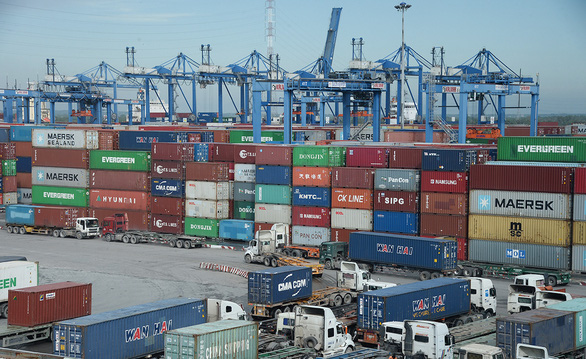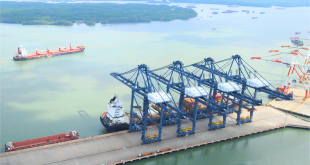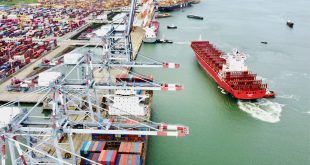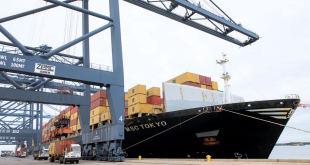
Industry has become a driving force that helped Vietnam log a record of US$517 billion in export-import revenues and run a trade surplus of more than $10 billion this year.
Vietnam’s trade and industry must rake in $300 billion in exports, manufacturing increases by 12 percent and continues to be an economic driver, and the sectoral trade surplus must widen to $15-17 billion next year, Prime Minister Nguyen Xuan Phuc said in a meeting on Friday to review 2019 and set targets for the sector in 2020.
The targets were built on industry and trade’s role in the country’s GDP growth of over seven percent and inflation rate of under three percent in 2019.
Industry played an important part and manufacturing recorded a 10.5 percent rise in value, with Vietnam’s export-import turnover reaching an all-time high of $517 billion and its trade surplus surpassing $10 billion.
Vietnam earned $264 billion from exports and spent $253 billion on imports in 2019, according to official figures.
Vietnamese automaker Truong Hai Auto Corporation (Thaco) handed over Thaco Bus-branded buses to the Philippines on Saturday, the fruit of its work over three years, CEO Pham Van Tai said at the meeting in Hanoi.
The shipments realize Thaco’s strategy to join the global supply chain and export vehicles to regional countries, Tai added.
The automaker shipped 186 vehicles to five nations in Southeast Asia along with $14.5 million worth of parts in 2019, paving the way for exporting over 1,000 automobiles and $21 million of parts next year.
Manufacturing has recorded a trade surplus of almost $100 million for the first time this year.
“It’s still a small number but a good sign if we think of billions of dollars in deficit in the past,” said Truong Thanh Hoai, director of the agency for industry under the Ministry of Industry and Trade.
Among 46 groups of products, manufacturing contributed 29 that recorded over $1 billion in trade each, Hoai said, adding that phone and parts earned $35 billion in trade surplus, textiles and garments $33.8 billion, and wood and wooden products $7.2 billion.
Vietnam needs to improve its competitiveness and restructure its industry, particularly when protectionism is rising, Tran Tuan Anh, Minister of Industry and Trade, said at the meeting.
The country should leverage free trade agreements and cut red tape in order to increase production and productivity, he added.
Manufacturing, innovation, and technology must be the bases of Vietnam’s industry, PM Phuc said.
The Ministry of Industry and Trade should spur the development of the private sector and attract investments from tech companies to Vietnam, he pointed out.
The premier noted that the industry and trade sector should take advantage of trade pacts, effectively take safeguard measures, fight trade fraud, and focus on human resource training to maintain its integral position in the national economy.
 Vietnam Seaports Association
Vietnam Seaports Association




